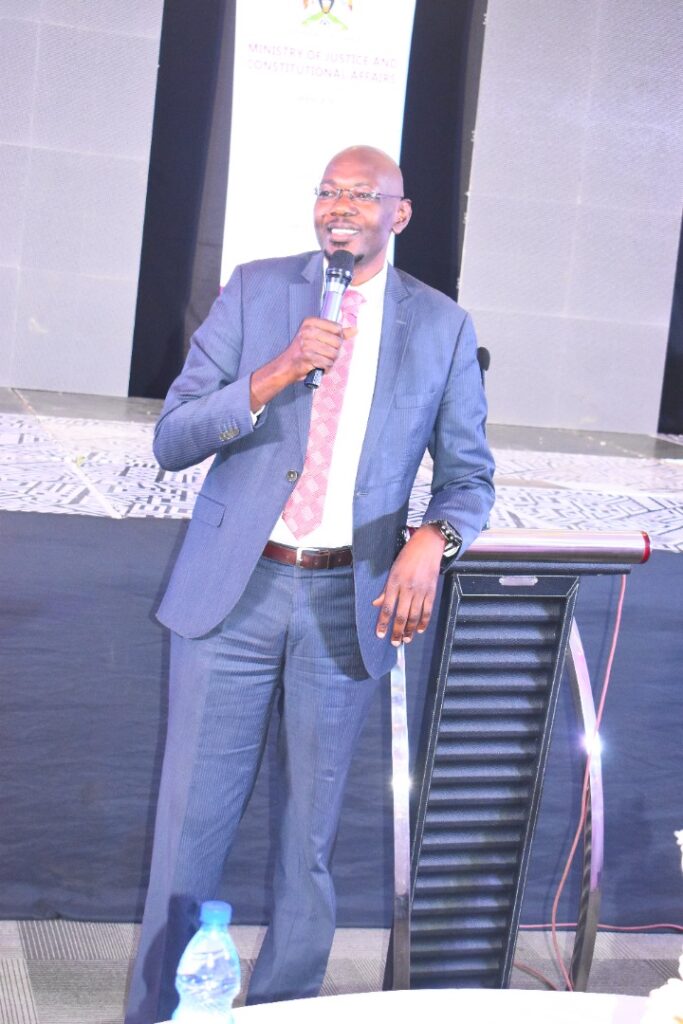Uganda has told the United Nations Human Rights Committee that for a Non Governmental Organization (NGO) to operate in the country, it must be registered and issued a permit by the NGO Bureau under the Ministry of Internal Affairs.
Uganda was responding to issues raised in the second periodic report of the International Covenant on Civil and Political Rights on Uganda (ICCPR) – a multilateral treaty that commits nations to respect the civil and political rights of individuals, including the right to life, freedom of religion, freedom of speech, freedom of assembly, electoral rights and rights to due process and a fair trial.
Uganda is a signatory to ICCPR) which it ratified on 21 June 1995.
As a State Party, Uganda is required under Article 40 to provide reports on measures taken to give effect to the rights recognized in the ICCPR and on the progress made on the enjoyment of those rights.
In 2020 Uganda presented her second Periodic Report which the UN Human Rights Committee considered in its 135th Session, and the country was requested to respond to the issues raised and provide an update on additional developments regarding the domestication of the Covenant by 31st January, 2023.
Among the issues raised by the UN Human Rights Committee under ICCPR included; the legal and administrative requirements for registration and reporting of NGOs under the NGO Act and the Money Laundering Act
In response, Uganda informed the UN Human Rights Committee that the country has the NGO Act in place which requires all NGOs to obtain a permit from the NGO Bureau in order to operate in the country.
“Section 29 (2) of the Non-Governmental Organizations (NGO) Act and Regulation 4 of the NGO Regulations, 2017 provide requirements for registration of an NGO, including obtaining a permit in accordance with section 31 of the NGO Act; submission of financial statements, annual returns and a report of the audited books of accounts by a certified auditor to the NGO Bureau; estimates of its income and expenditure, budget, work plan, information on funds received and the sources of funds in accordance with section 39 of the NGO Act,” the Deputy Attorney General, Jackson Kafuuzi read the report to journalists in Kampala on Monday.
The requirement for registration as a regulatory tool, Kafuuzi is not unique to NGOs, but rather a general concept applicable to other proffessionals and sectors such as lawyers, medical practioners and players in the insurance and energy sector in Uganda.
Recently, Government has suspended activities of various NGOs on the pretext that they do not abide by the law.
At the beginning of 2021, President Yoweri Museveni directed the immediate suspension of the activities of the Democratic Governance Facility (DGF), the largest pool of donor funding to non-governmental organisations in Uganda over what was termed as financing of subversive activities.
In a January 2 ,2021 letter suspending DGF’s activities, President Museveni said he needed answers as to why and how the Ministry of Finance authorized a £100 million (shs500.8 billion) fund to operate illegally in the country without the involvement of cabinet.
Several NGOs across the country halted or downscaled activities weeks after the government suspended operations of DGF.
The most affected civil society organisation (CSOs) included those engaged in accountability, human rights and good governance, democracy, service delivery monitoring and capacity-building at national, regional and grassroots level.
Museveni would later in February 2022 lift the ban on DGF.
In 2020, the National Bureau for Non Government Organizations (NGO Bureau) suspended the operations of National Election Watch Uganda (NEW-U) – a coalition of 64 domestic NGOs which was launched on September 10th, 2020 to observe 2021 General Elections.
The coalition did not observe the elections after it’s operations were halted by NGO Bureau on grounds that it did not register with the latter that is mandated to register, regulate, monitor, inspect, coordinate and oversee all the activities of NGOs in the country.
The NGO Bureau Executive Director, Stephen Okello said that the operations of NEW-U were illegal because it was not registered in the country.
“NEW-U was operating in Uganda without any form of incorporation, registration and permission to operate under the relevant laws,” he said.
According to the NGO Bureau, NEW-U lacked the legal authority or basis to transact any activity on its capacity since it would not be held liable for its actions.
The suspension of NEW-U prompted one of it’s members, the Centre for Constitutional Governance (CGC), to file a petition in the Civil Division of the High Court challenging NGO Bureau’s action.
The Civil Society Organization alleged that NGO Bureau had no mandate or any powers whatsoever under the enabling law, the NGO Act of 2016 or any other law to suspend the activities of NEW-U as it is a civic association, and not an NGO.
However, Court dismissed the case.
In the same year, NGO Bureau announced an indefinite suspension of GiveDirectly – an American Non Governmental Organization, and also revoked the permit of operation of Bryan White Foundation and other NGOs.
The NGO Bureau said it established that; whereas Bryan White Foundation had a valid permit, it did not validate and has neither updated it’s status nor notified the NGO Bureau on anything regarding it’s operations.
The Bureau added that there is no evidence of any beneficiaries of the organization yet Bryan White Foundation has clear objectives and target beneficiaries.

